India decides: Vote counting underway in world’s biggest election
By Rhea Mogul and Jessie Yeung, CNN
Updated
2:24 a.m. ET, June 4, 2024
Modi supporters on results day: “He has come to us as an instrument of God”
From CNN’s Esha Mitra and Aishwarya S Iyer in New Delhi, India
Surjeet Singh, 50, has seen various governments come and go in his 25 years as a cab driver in Delhi — but none with a stronghold like the ruling Bharatiya Janata Party (BJP), he said on Tuesday as officials count votes across India.
“Everyone I’ve spoken to today says BJP is coming back,” he said. “For us middle-class people, (Prime Minister Narendra Modi) is the only one who has done anything, who has shined India’s name abroad.”
Modi has twice ended an election campaign with meditation. But he has recently been making increasingly grand displays of piety, to capitalize on Hindu-nationalist sentiment as he eyes a third consecutive five-year term in power.
Singh said he had been monitoring the polls all morning as early results roll in, and though the BJP hasn’t been doing as well as he anticipated, he was confident the party would reach its goal of a parliamentary supermajority.
Early results: As of noon local time, the BJP has secured one seat and is leading in more than 230 constituencies, while the main opposition Congress party is leading in 96.
Doubt trickling in: Even within the BJP, there’s now a seed of doubt about the party’s ability to win a supermajority, which requires controlling 400 of the 543 available seats.
“The counting is still on so we can’t say anything definitively… Maybe not 400 seats, but we will get 360 seats,” said Rajgopal Kashyap, a 28-year-old BJP party worker who traveled to Delhi from Uttar Pradesh state to witness the election results.
Speaking to CNN from the BJP headquarters on Tuesday, he said that they still had hope.
“Even if we don’t get 400 seats, we will try harder. But we know we will form the government in any way,” he said.
“No one can do for us what our Prime Minister Modi can. He has come to us as an instrument of God. He will take our country forward and is the only one who can run the country.”
India’s stock market plunges on early preliminary results
From CNN’s Diksha Madhok
Indian stock markets plunged on Tuesday after early counting showed that the race for the country’s next prime minister is more competitive than exit polls had predicted over the weekend.
Analysts fear that if incumbent Prime Minister Narendra Modi’s Bharatiya Janata Party underperforms in the polls, key economic reforms may be put on the back burner.
India’s benchmark Sensex index, which tracks 30 large companies, and the broader Nifty 50 index each fell by nearly 5%.
The drop comes just a day after Indian stocks hit record highs, with experts predicting a resounding victory for Modi.
The 73-year-old ran on his economic record over the past 10 years, a period of robust growth for India, and aims to make the country a $5 trillion economy before the end of the current decade.
What are the issues at stake in India’s election?
From CNN’s Rhea Mogul
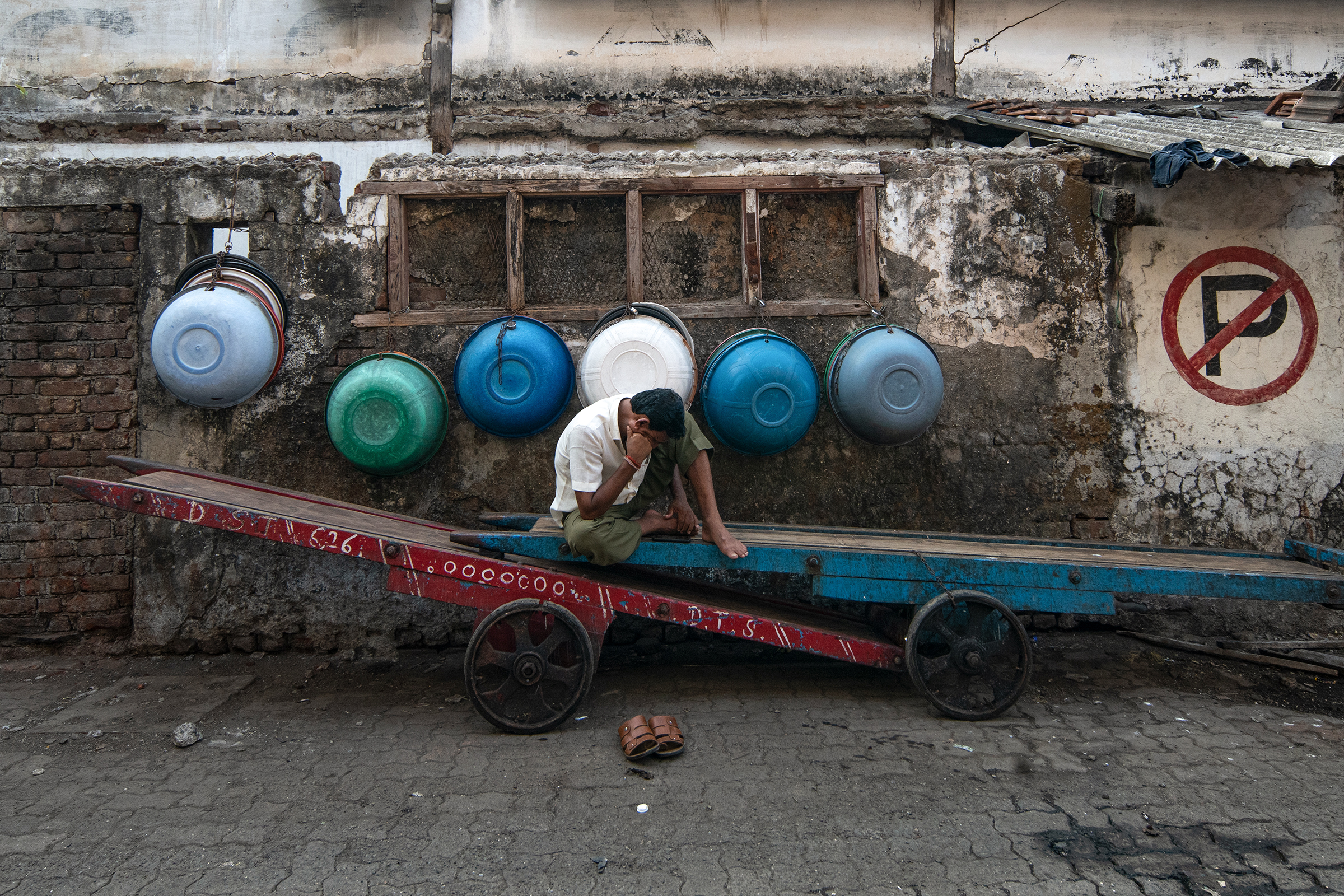
Indians voted with several significant concerns in mind.
- Unemployment: Much has been said about India’s rising economy, youth bulge and path to economic stardom. But beneath the hype lies a years-long unemployment problem. By the end of 2023, the unemployment rate among youth ages 20-24 was 44.9%, while the overall unemployment rate stood at 8.7%. In the world’s most populous country — and the nation with the largest number of young people — there is a vast gap between the supply and demand for jobs, experts say.
- Farmer protests: Agriculture is the primary source of livelihood for about 55% of India’s 1.4 billion citizens, but farming households made an average income of just 10,218 rupees ($137) per month in 2018-19, according to the latest government statistics — 316 rupees below the nation’s average salary that year. Protesting farmers have repeatedly taken to the streets to demand stronger guarantees for their economic welfare, emerging as the strongest threat to the ruling party in recent years, some analysts say.
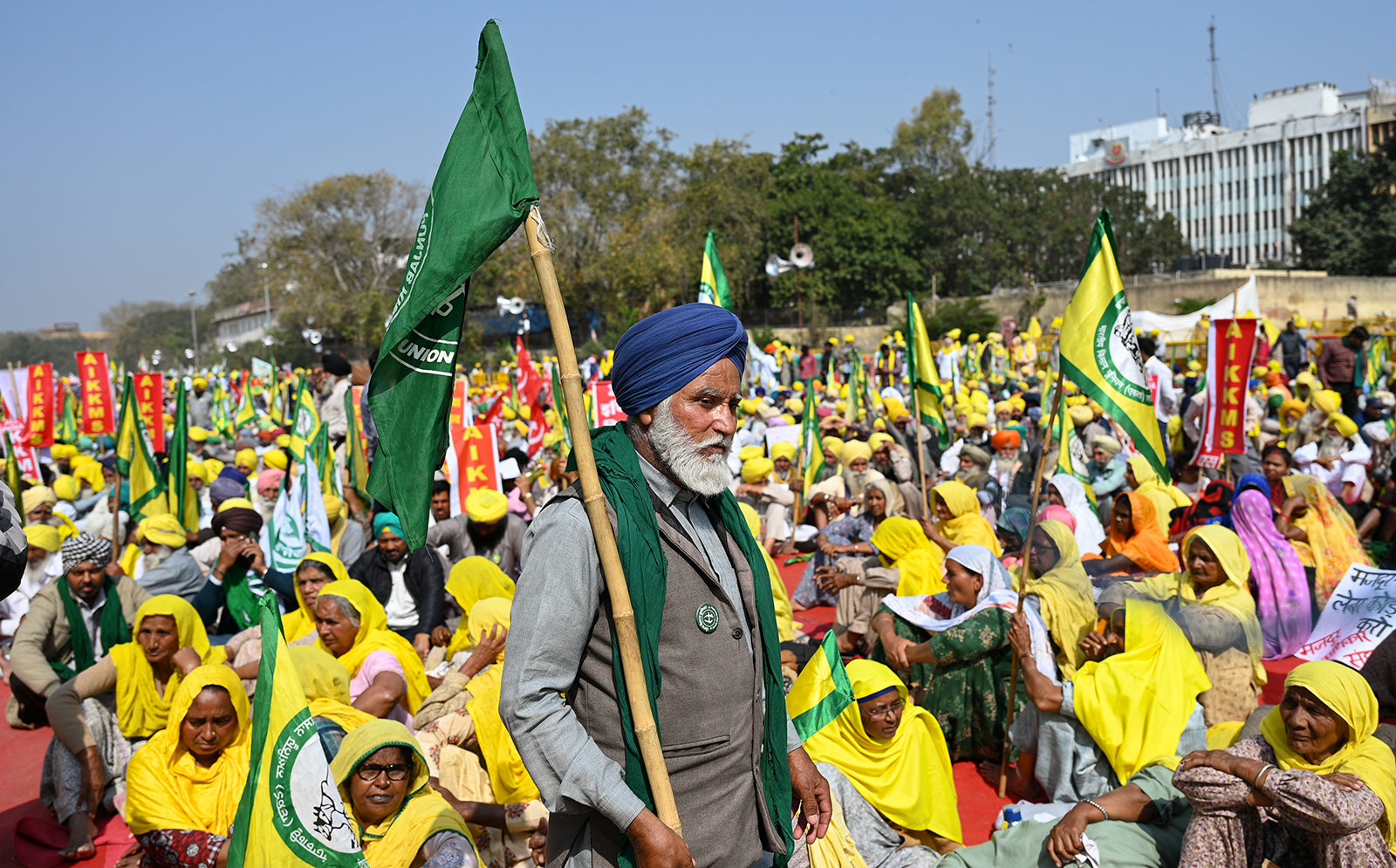
- Democracy in decline: India’s opposition parties say they are campaigning with the intention of “saving” India’s democracy. And analysts have sounded alarm over the alleged weaponization of federal agencies to imprison critics of Modi and his government. The recent detention of Delhi’s Chief Minister Arvind Kejriwal sent a jolt through the country, and indexes of press freedom and democracy show India sliding down in rankings.
- Rising religious tensions: Critics say Modi and his Bharatiya Janata Party (BJP) have resorted to divisive tactics to win support during their decade in power, marginalizing millions of minorities as they push their Hindu nationalist credentials in the constitutionally secular country, while giving rise to pockets of deadly violence. The BJP says it doesn’t discriminate based on religion, but many minorities — especially Muslims — have raised fears of another five years of Modi.
Religious tensions and “bread and butter” issues: What Indians are voting on, analyst says
Throughout the six-week marathon election, several key issues have dominated the campaign trail — particularly India’s deep religious divisions and fears of Islamophobia.
Prime Minister Narendra Modi has leaned into his Hindu nationalist platform, portraying himself as a leader chosen by God.
“Until my mother was alive, I had believed that perhaps my birth was a biological one,” Modi told CNN affiliate CNN News-18 in May. “But after her death, when I look at my life experiences, I’m convinced that God has sent me here.”
Subir Sinha, director of the SOAS South Asia Institute, called Modi’s comments “disappointing.”
“In a democracy, you have to hold the leader accountable, but once you declare yourself to be a messenger sent by God and that you’re doing God’s mission, that obviously elevates the leader into a celestial realm while (voters and civilians) remain within the material world,” he told CNN’s John Vause.
“That removes all sorts of aspects of accountability which are key to any kind of a democratic polity.”
Economic voting issues: Sinha said that “bread and butter issues, issues concerning employment, rising prices” have also played a big role in the election.
Modi is running on his economic record over the past 10 years, a period of robust growth for India.
But despite the euphoria surrounding the growth figures, economists say the Indian economy will face enormous challenges in the next decade.
The new government will have to create hundreds of millions of jobs for a population that remains largely impoverished. Youth unemployment rates in India are now higher than global levels, according to a recent report by the International Labour Organization.
The ruling BJP is leading — but the opposition Congress is making strides too
Though it’s only midmorning in India, the Election Commission has begun sharing preliminary results online as votes are counted across the nation — with Prime Minister Narendra Modi’s ruling Bharatiya Janata Party (BJP) leading the count so far.
These early results “suggest that yes, the BJP is favored to win, but it’s a much more competitive race than many of the pollsters and even the exit polls had predicted,” said CNN Senior International Correspondent Ivan Watson, reporting from the capital New Delhi.”Th
preliminary results… suggest that the main opposition party, the Indian National Congress, is leading in 100 seats,” Watson said.
“If that trend continues, (that) would suggest they could be poised to win far more seats than they won in 2019, when that party was basically shellacked at the polls.”
Experts caution that vote counting only began a few hours ago, and the balance could keep shifting as the day goes on.
On Monday, exit polls helped drive record gains in Indian stock markets, Watson noted.
Subir Sinha, director of the SOAS South Asia Institute, said Congress’ strides were “a surprise for many people who had taken the exit polls more seriously than they perhaps should have.”
“These will not hold all the way through the count — but early indications are obviously very different from the exit polls that came out in the last two or three days,” he told CNN’s John Vause.
Victory target: A party or a coalition needs 272 parliamentary seats out of 543 to win. The leader of the party that wins a majority will become prime minister and form the government. Modi is aiming for a 400-seat supermajority, with 370 seats directly controlled by the BJP and the others from its National Democratic Alliance.
In the world’s biggest election, millions of migrants were unable to vote
From CNN’s Jessie Yeung, Priti Gupta and Dhruv Tikekar
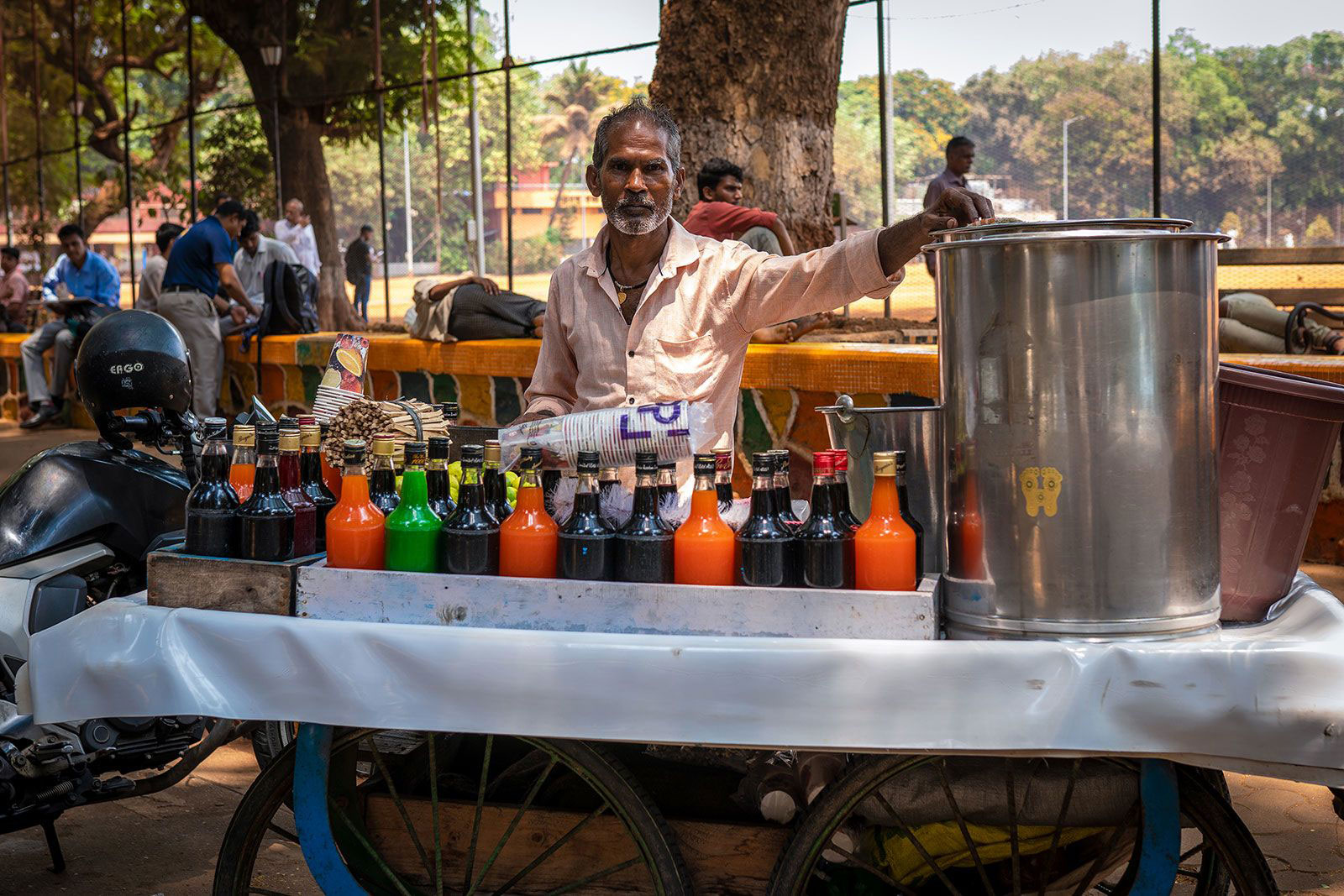
Chanu Gupta has lived in India’s financial capital Mumbai nearly his whole life, since arriving as a child from the northern state of Uttar Pradesh.
But when polls opened in the city, the 59-year-old street vendor wasn’t able to vote in the nationwide election – along with millions of internal migrant workers who are a major backbone of the country’s economy.
“I cannot go vote as I don’t belong to Maharashtra state,” Gupta told CNN in Mumbai’s shopping district Dadar, standing next to the roadside cart where he sells shaved ice and cold drinks. “I have voting rights in another state.”
Under India’s election rules, eligible voters can only cast ballots in their constituencies — meaning those working outside of their state have to return home to vote.
That’s all but impossible for many out-of-state workers, especially underprivileged daily-wage workers in the unorganized sector. And it’s a huge group — one study estimates there were about 600 million internal migrants in 2020, making up 43% of the country’s nearly 1.4 billion population at the time.

These workers are often from poorer rural parts of India, in search of work in bigger cities. Even then, they earn low wages that are usually sent home to support family members.
Perhaps nowhere is this starker than Mumbai — India’s richest city and the birthplace of the Bollywood movie industry. Often referred to as the “city of dreams,” Mumbai draws migrants from across the country hoping to find wealth and success.
More than 43% of Mumbai’s population were classed as migrants in 2011 during the last national census, according to migration think tank Knomad.
Read the full story.
In pictures: The indelible ink behind India’s election
From CNN’s Dhruv Tikekar
India’s twice-a-decade exercise in democracy has once again left its mark on the country’s people, in the form of purple-streaked index fingers.
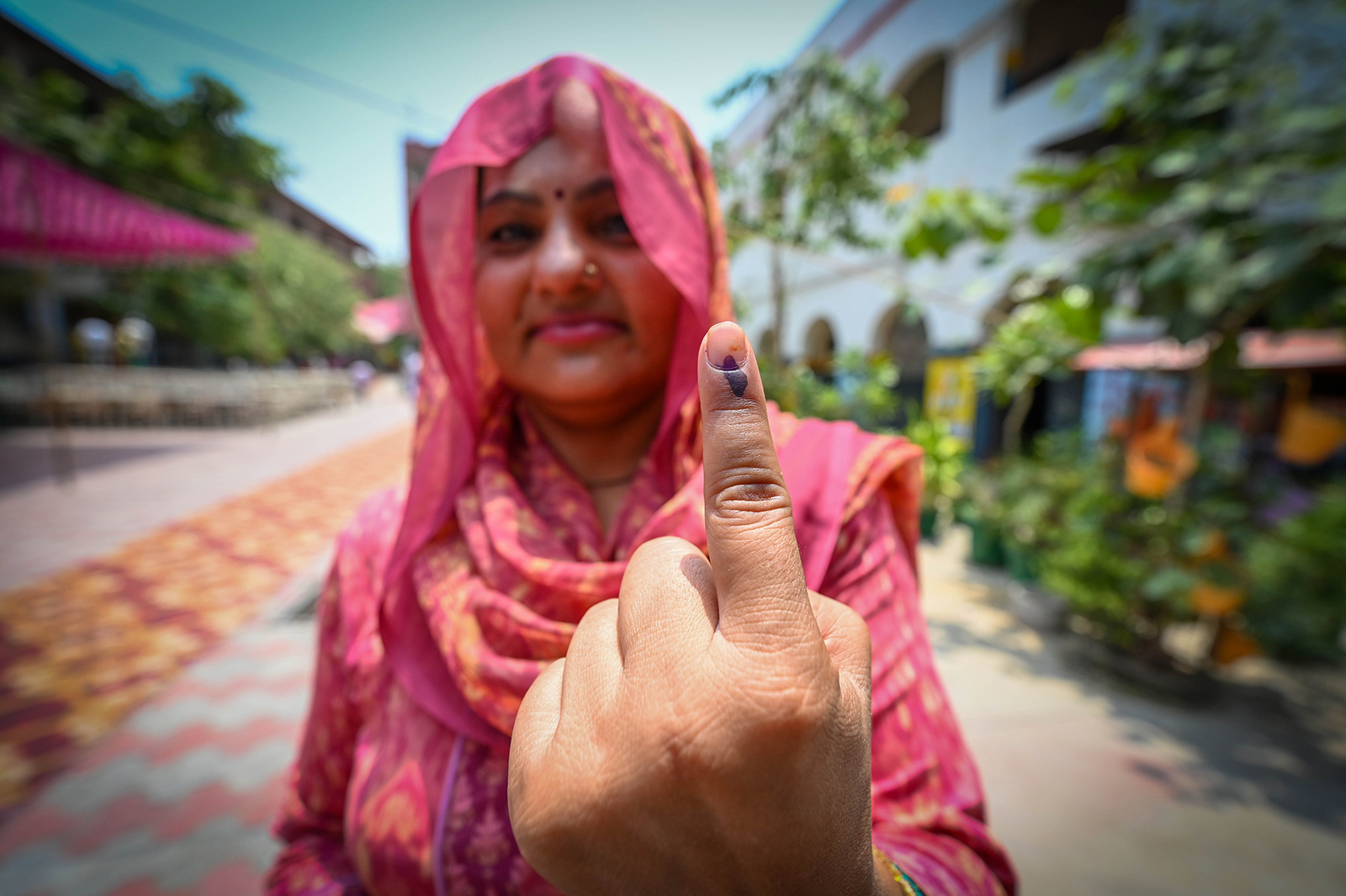
The Election Commission uses indelible ink to prevent fraud or duplicate votes. Once a voter arrives at the booth to cast their ballot and has their ID verified, the ink is painted across the top of their left index finger, leaving a stain that can take up to two weeks to wash off.

It may be rudimentary, but the method has been so effective that it’s been in place for more than seven decades.
“Right from the prime minister to the most common person, everybody flashes their (marked) finger,” said K Mohammed Irfan, managing director of Mysore Varnish and Paints Limited (MVPL), the state-owned company that exclusively makes and distributes the liquid to polling booths across the nation.
“From celebrities to film stars… (it has become) a mark of democracy that I think is synonymous with elections,” he told CNN in a video interview.
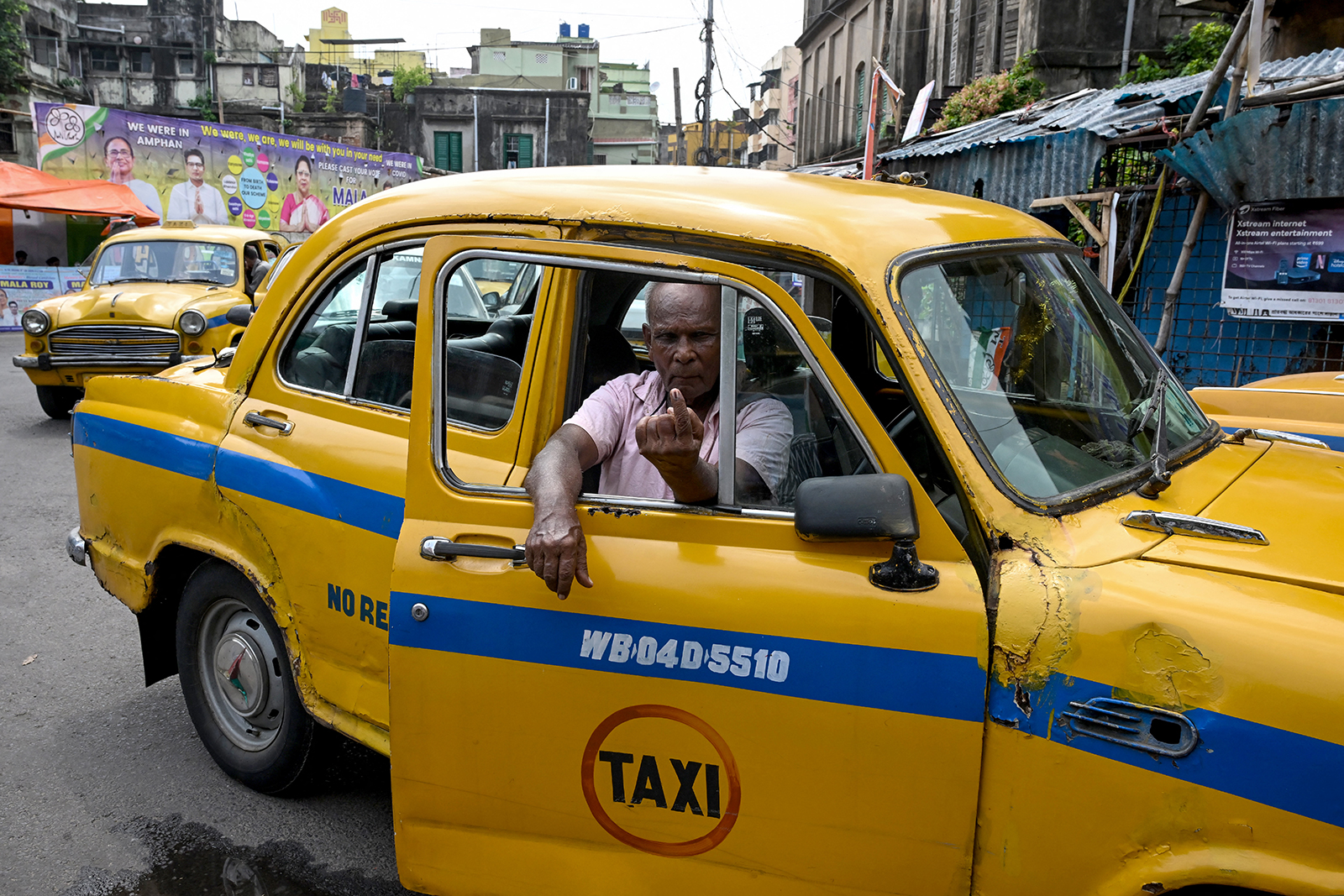
More than 960 million people were eligible to vote in India’s election, the world’s biggest. And workers at the company’s factory in Mysuru, a city in southwestern Karnataka state, have spent months preparing nearly 2.7 million ink vials, its largest order to date.

The orange containers were filled and carefully packed for distribution ahead of this year’s elections, which are underway and end June 1. Each vial contains enough liquid to mark approximately 700 voters.
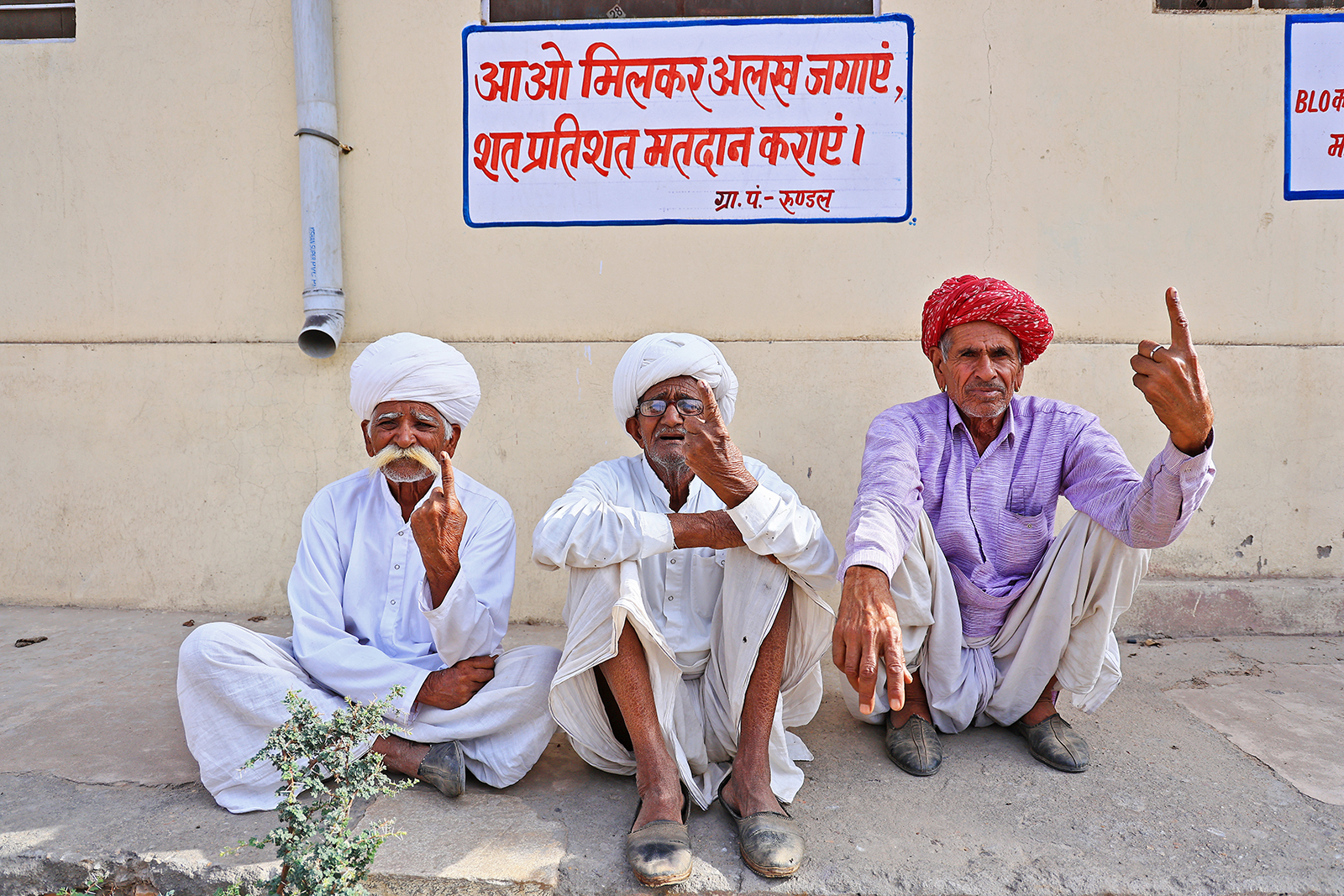
The key to the ink’s literal staying power? A tightly guarded formula which has remained unchanged since 1951. “Indelible ink serves no other purpose,” said Irfan. “We only manufacture the required quantity.”

While Irfan says the company is “bound to secrecy” when it comes to the ink’s exact composition, it does contain the chemical compound silver nitrate, which causes a purplish stain when it comes into contact with skin and is exposed to sunlight.
Read more about India’s indelible ink.
Analysis: Modi and ruling BJP embraced Islamophobic rhetoric on campaign trail
Analysis from CNN’s Rhea Mogul
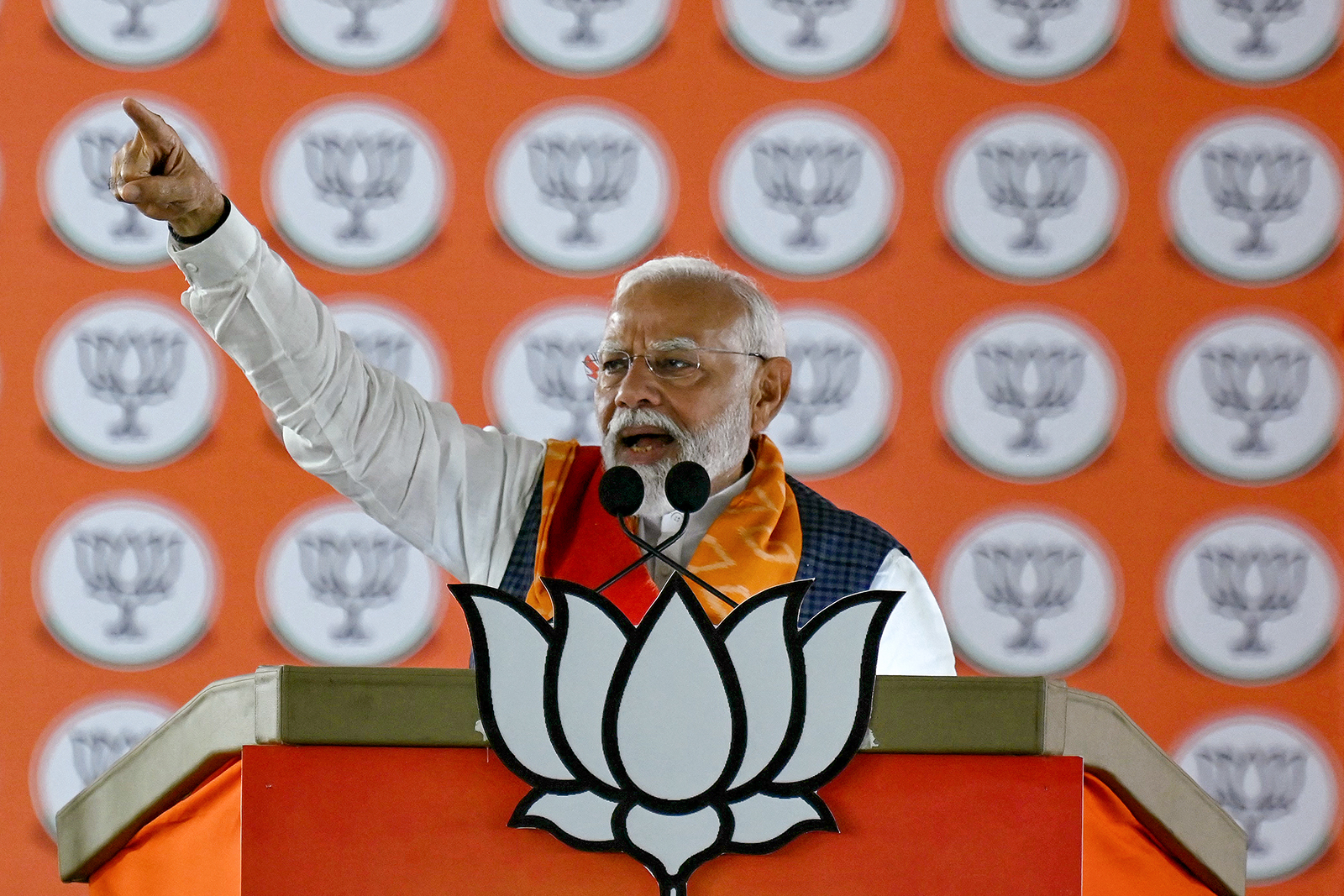
Indian Prime Minister Narendra Modi increasingly resorted to overtly Islamophobic language during his election campaign, critics and observers said, as he sought a third straight term governing the world’s most populous nation.
The popular leader — and overwhelming favorite — embraced negative campaigning, they said, and received little pushback from civil society or election authorities.
Followers of Modi’s Hindu-nationalist Bharatiya Janata Party (BJP) — and some of its top figures — have long been accused of using inflammatory language to describe the country’s 200 million Muslims, but rarely Modi himself. But this election has brought a clear shift, critics say.
“What is unique about what we’ve seen recently, is that these statements are being uttered by the Prime Minister himself,” said Milan Vaishnav, a senior fellow and director of the South Asia Program at the Carnegie Endowment for International Peace. “Not necessarily by surrogates — the Home Minister, or by the chief minister — or by other kind of party apparatchiks.”
The shift in tone is making many Indian Muslims nervous.
“Modi and the BJP have for a long time been making references to the community, but it’s moved on from the dog whistle,” said political researcher and columnist Asim Ali. “It’s painting us as an existential threat to Hindus. It’s coming directly from the prime minister. It’s anti-Muslim, and it’s dangerous.”
Modi and his BJP have repeatedly said they do not discriminate against minority groups. But analysts and observers noted that multiple speeches he made during his campaign specifically refer to Muslims and paint them in a negative light.
Read the full analysis.
BJP wins first seat unopposed in Modi’s home state
From CNN staff
The ruling Bharatiya Janata Party (BJP) has secured its first parliamentary seat of the 2024 election, according to the Election Commission of India, as officials across the country tally up 642 million votes.
The win is in the city of Surat, in Prime Minister Narendra Modi’s home state of Gujarat, where the BJP candidate stood uncontested.
BJP in early lead: As of 9:20 a.m. local time, Modi’s BJP is leading in more than 140 constituencies, according to the Election Commission’s website. However, it’s still very early in the count and it’s unclear how many votes remain to be counted in those constituencies.
Waiting for results: It’s unclear what time the full results will be known, but in the last election the general trend became clear by early afternoon. The Election Commission won’t certify numbers until every seat has been counted, a process that could take a day or longer, especially if there is a hung parliament.
Victory target: A party or a coalition needs 272 seats out of 543 to win. The leader of the party that wins a majority will become prime minister and form the government. Modi is aiming for a 400-seat supermajority, with 370 seats directly controlled by the BJP and the others from its National Democratic Alliance.
